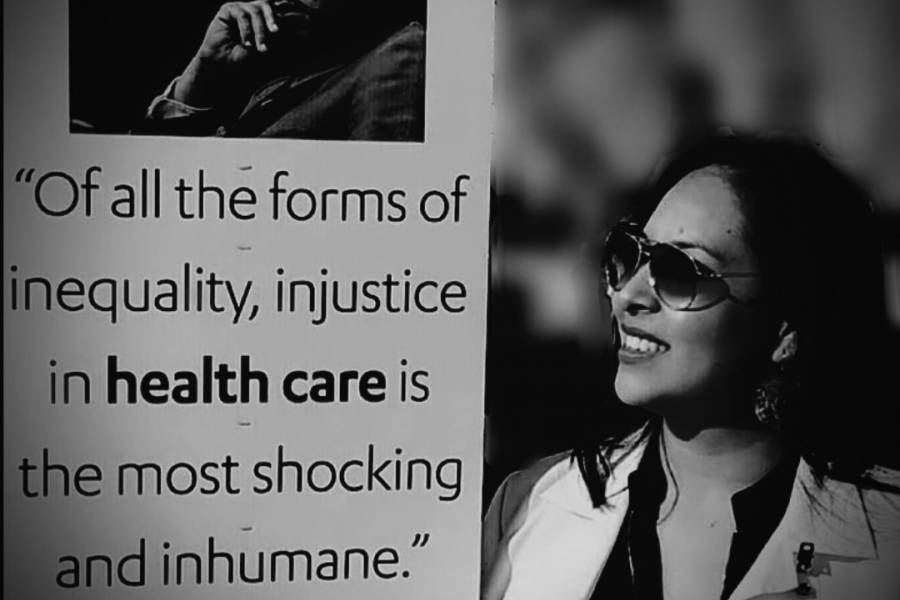When many people arrive at the Los Angeles urology clinic staffed by nurse practitioner Lucia Diaz, Nurs '06, '08 (MSN), they have been suffering from serious illnesses—often caused by untreated diabetes—for months or years. Whether because of poverty, a lack of insurance, or systemic racism, many do not seek care at the Harbor UCLA Medical Center clinic until they develop life-threatening complications.
"A lot of patients referred to us through the emergency room have never seen a primary care provider," Diaz says. "It's a shock for them when they develop [significant issues] due to untreated diabetes, for example. I like to educate my patients about their conditions and the lifestyle changes that they can make to manage their health. I explain the anatomy and what diabetes can do to the body, including cause an array of urological conditions. It's a lot to take in and it takes a lot of time to explain it all, but it helps them go home and change their diet."
Diaz, 39, is one of five winners of Johns Hopkins Alumni Association's 2020 Community Champion Award, which recognizes extraordinary efforts to address social, economic, and environmental issues. A first-generation U.S. citizen, Diaz said she felt called to address the health disparities in the Los Angeles immigrant neighborhoods in which she grew up. "My heart beats for my community, which is the underserved," she says. "I grew up experiencing the racism, the inequality. I want to do my part to stand up for my community, to advocate for access to health care for all."
After completing a microbiology degree from San Diego State University, Diaz enrolled in Hopkins' nursing program. "Hopkins did a wonderful job of instilling the values of community health in me," she says. In 2009, she was hired by Harbor UCLA Medical Center, becoming the only female urology nurse practitioner on staff. Many of her patients are Spanish-speaking immigrants supporting families in both the United States and their home countries. "You really feel for them," she says. "If they have to undergo surgery, they worry about how they're going to work, how they're going to feed their families, pay their rent. I tell them their family needs them to get healthy to do all those things. But it's hard for them and for us."
Diaz takes the time to coach each patient through the changes they must make to prevent their conditions from worsening—work she finds both challenging and immensely rewarding. She often refers patients to nephrologists or endocrinologists but also talks them through the diet and lifestyle modifications they must make to control their diabetes. "I've had a few patients who go through this diet and lifestyle change and come in and hug me," she says. "They say, 'I feel so much better; I've lost so much weight.' That really makes me feel that I'm in the right place, serving my community."
Posted in Alumni








